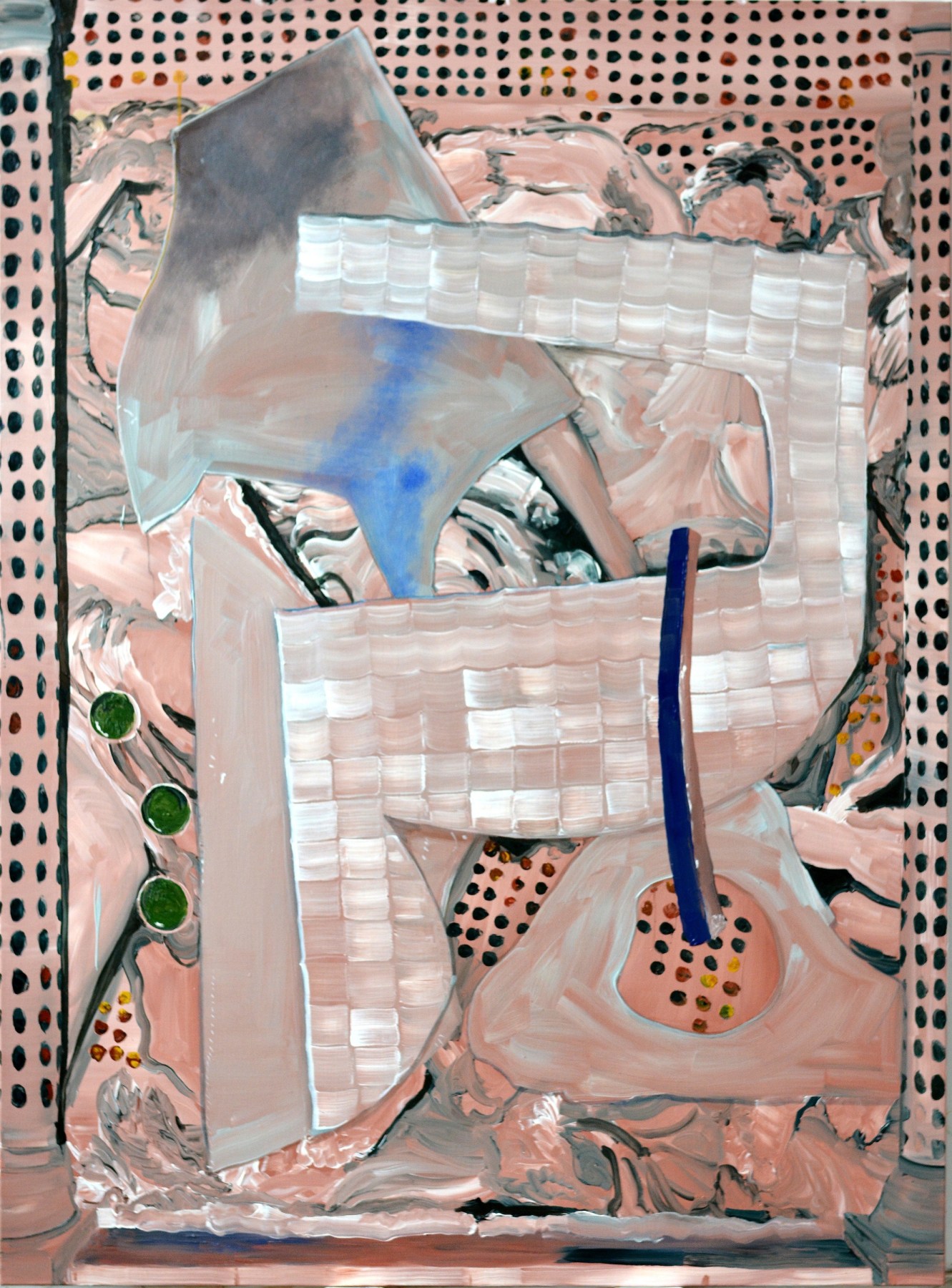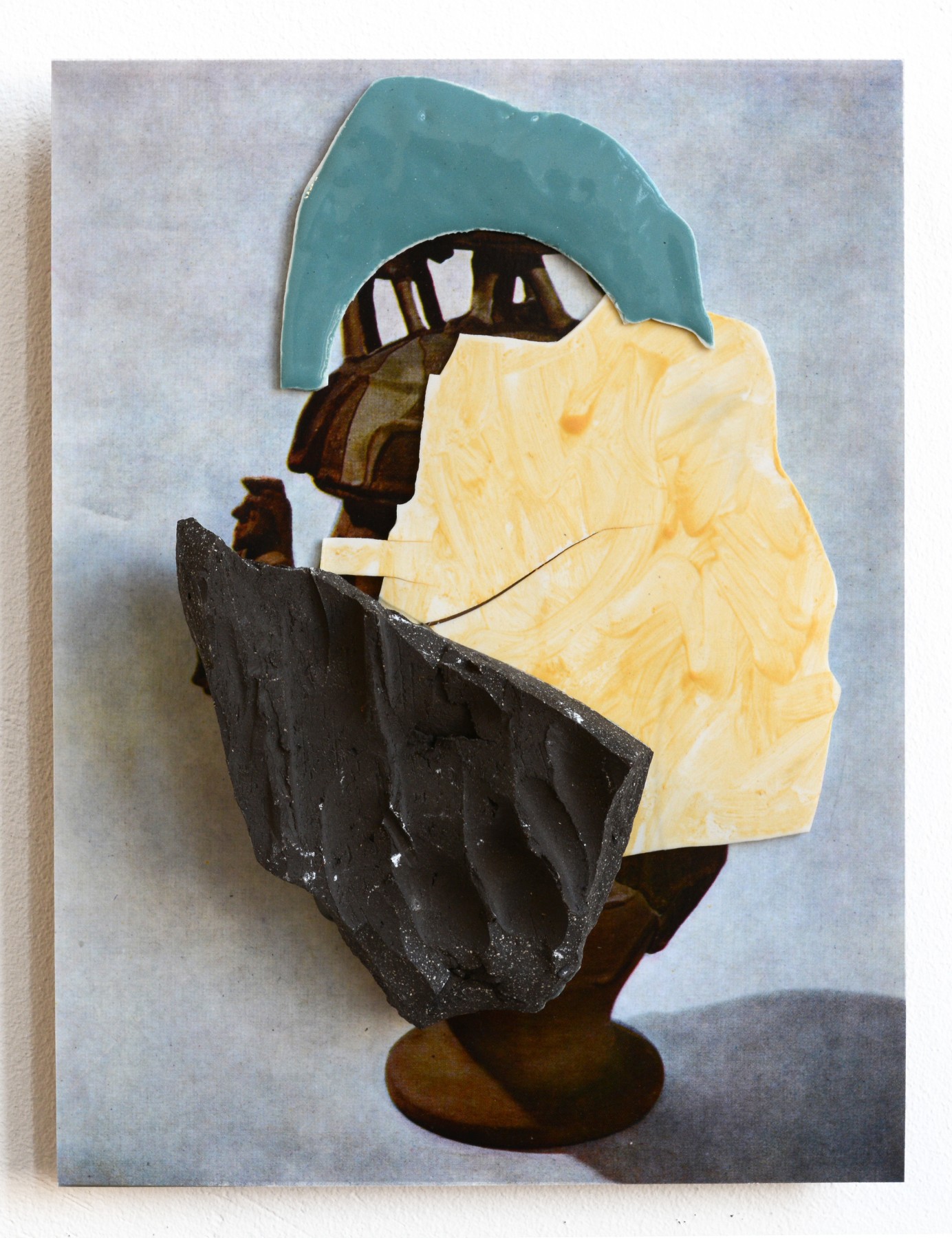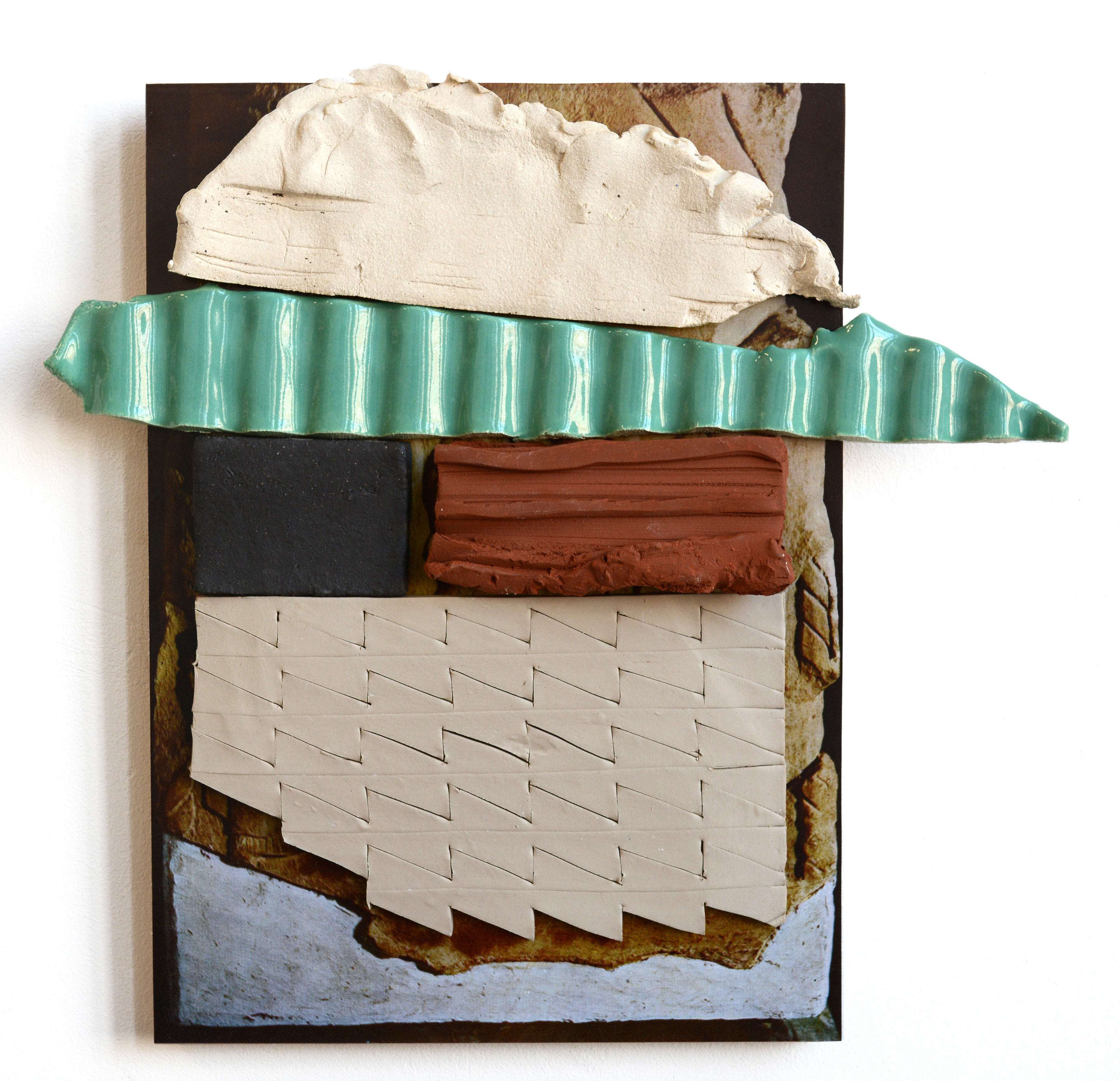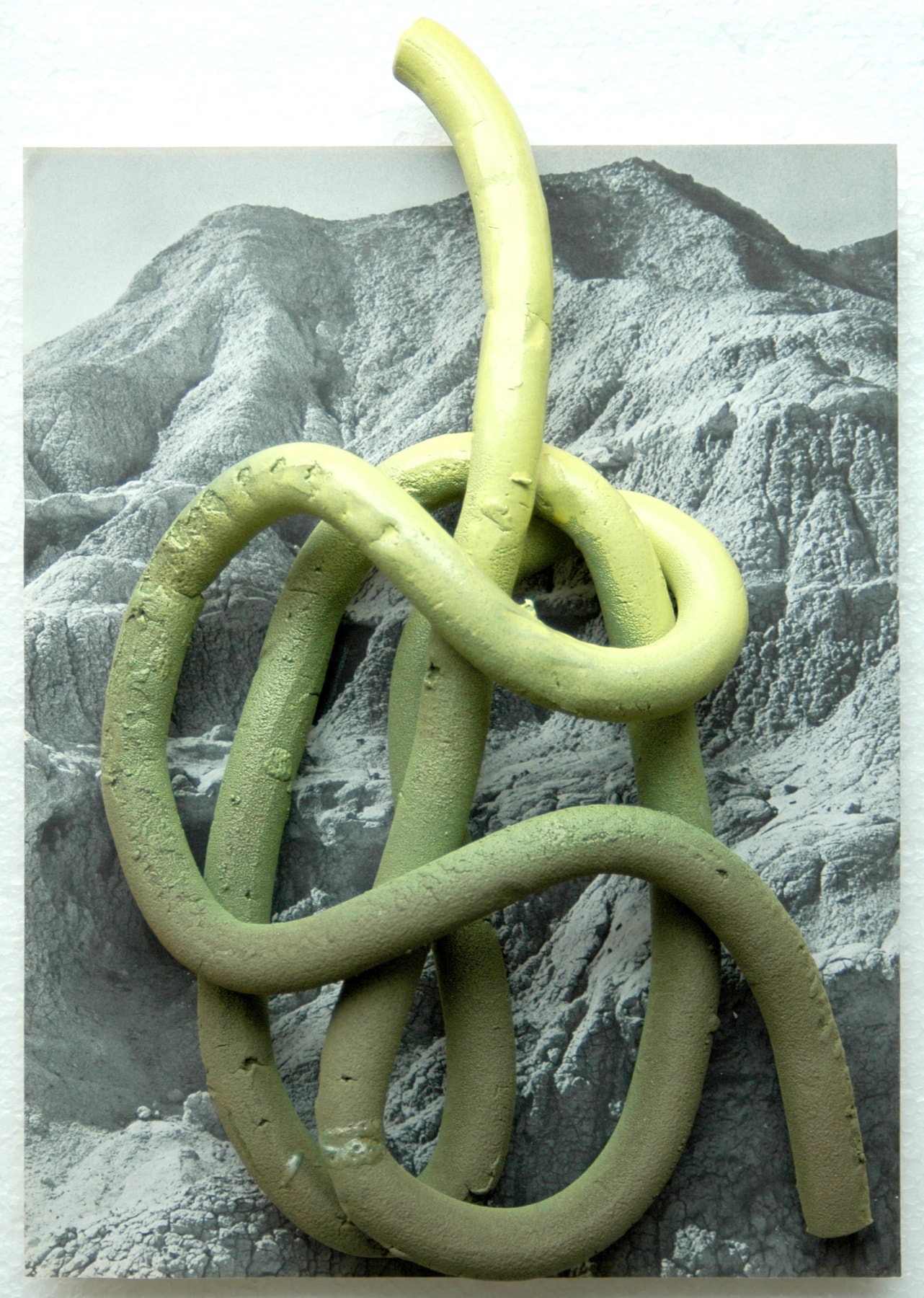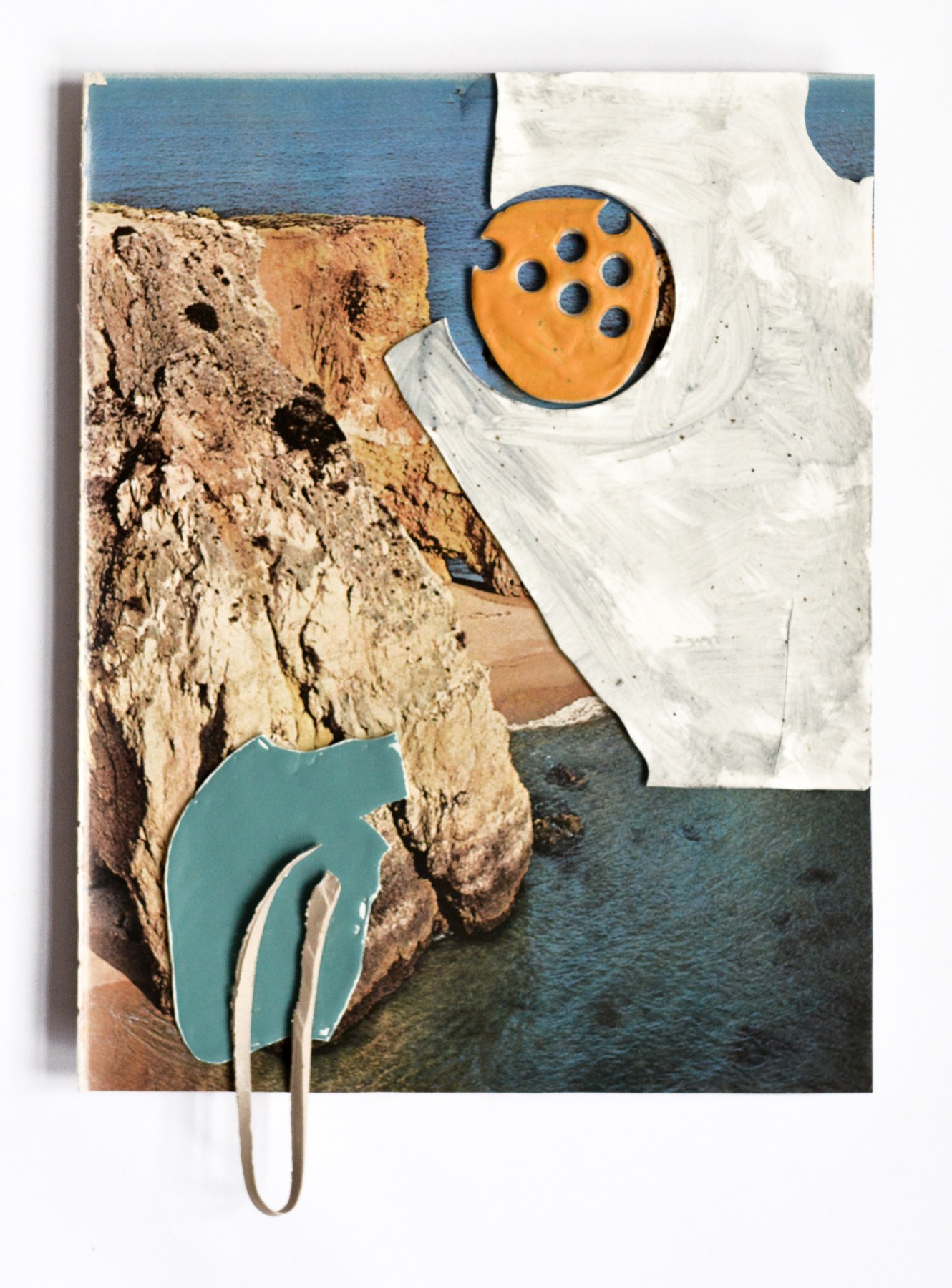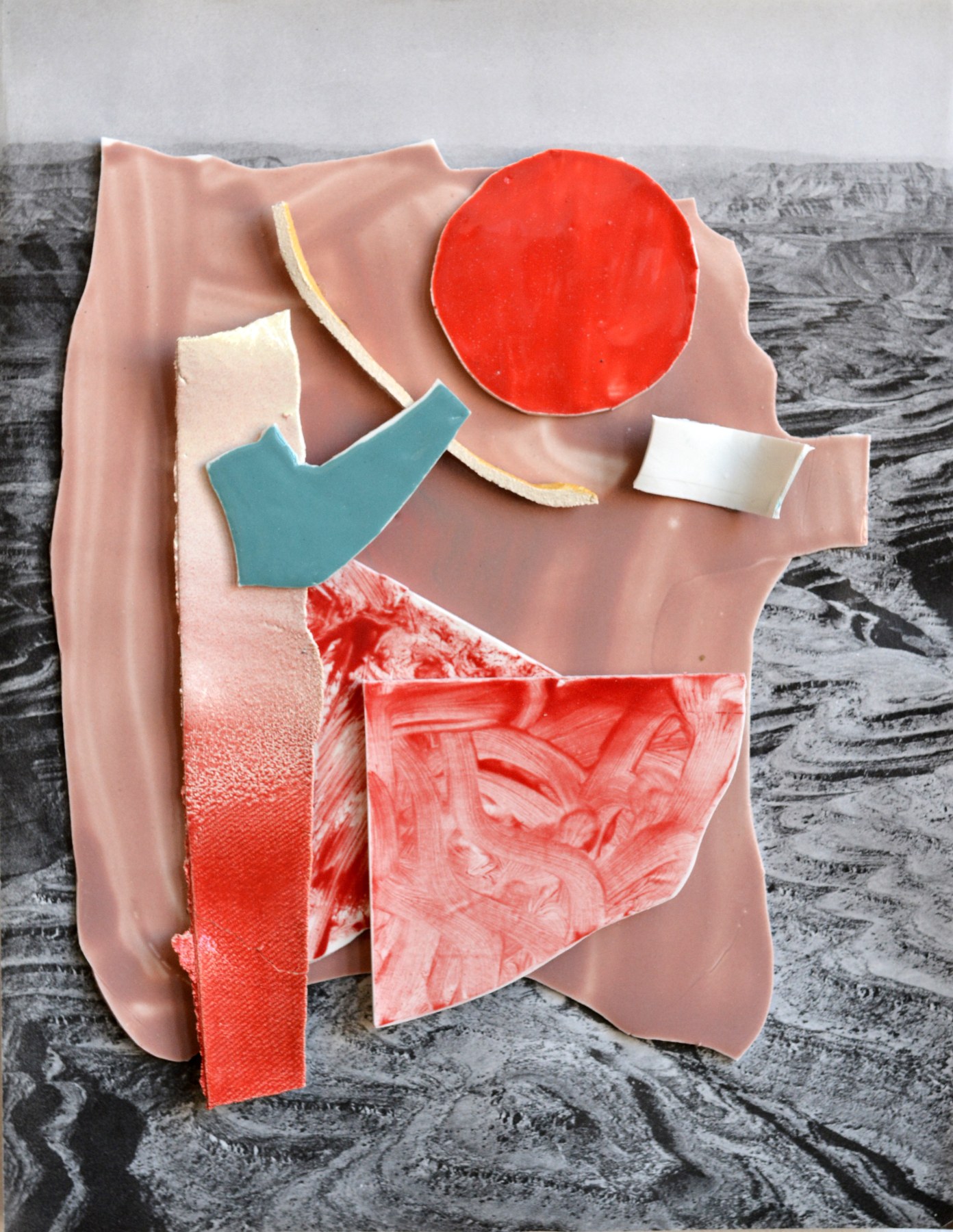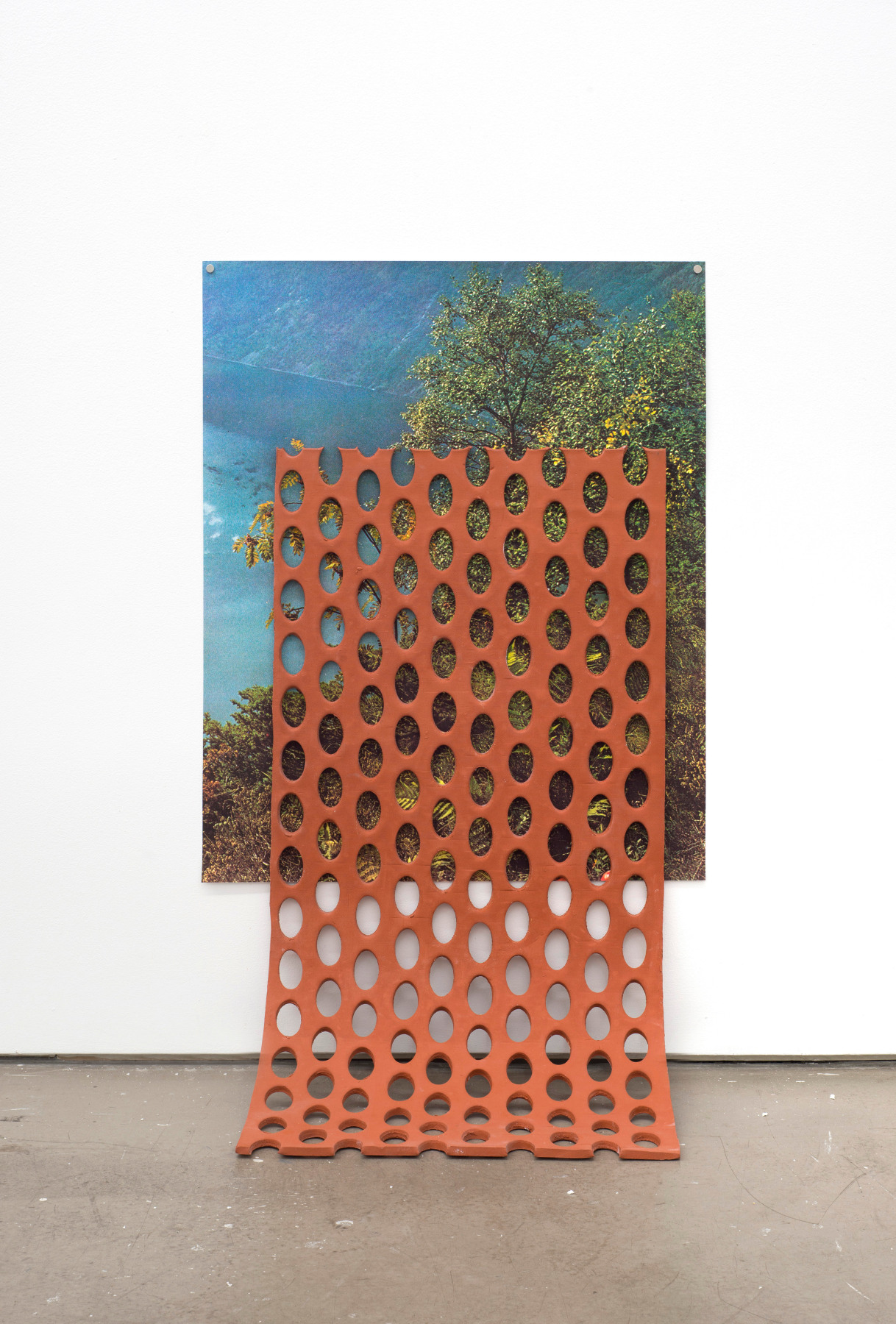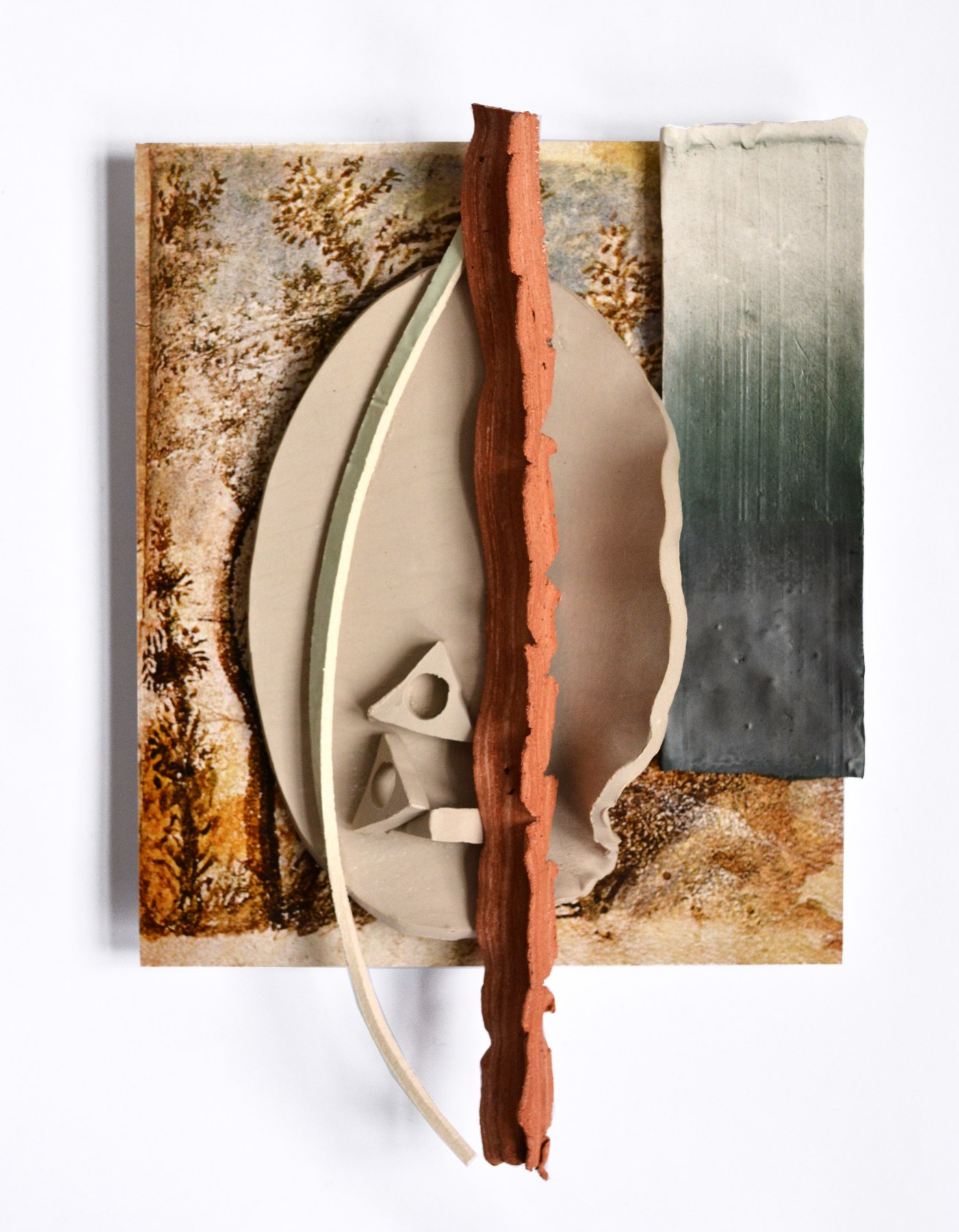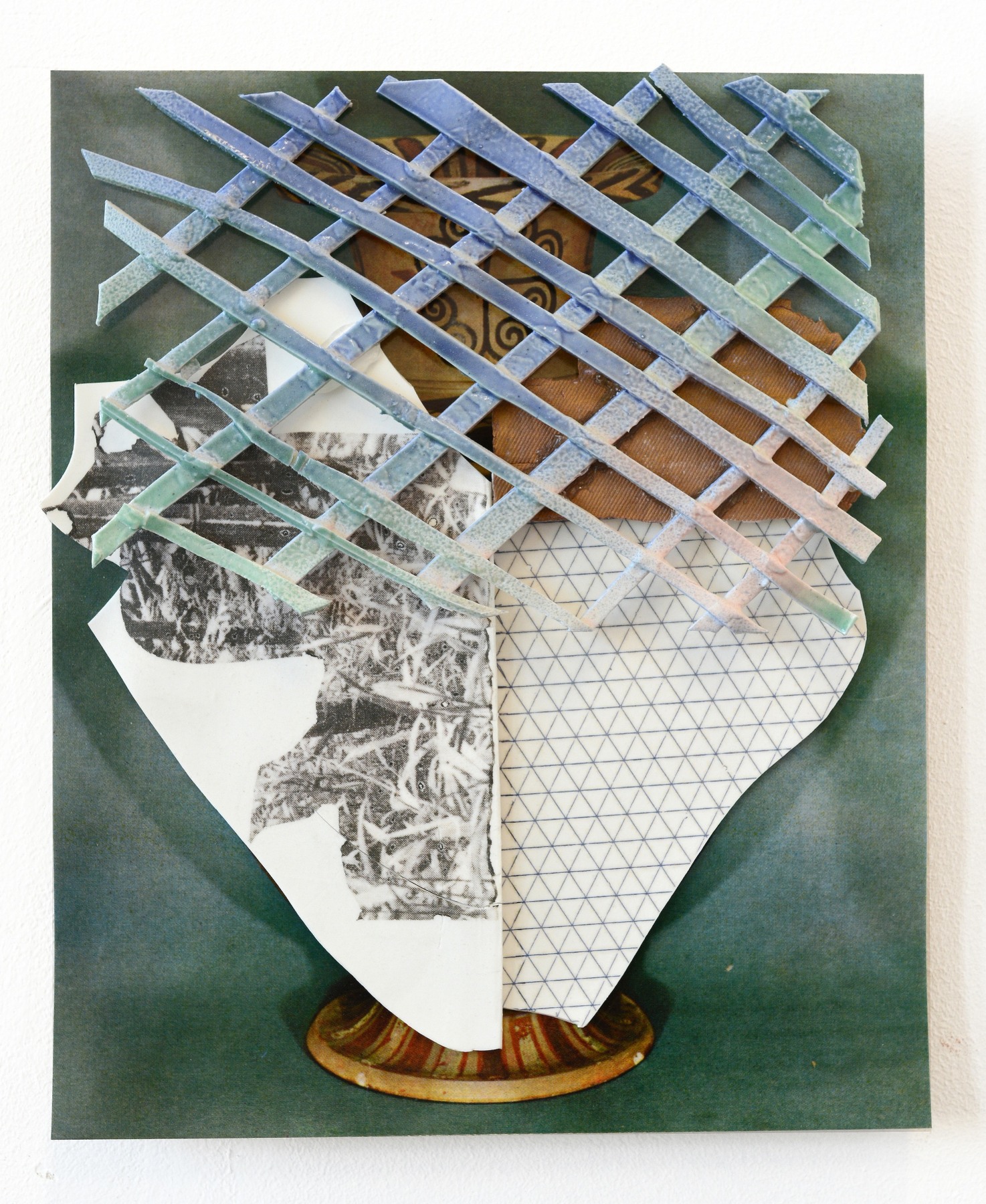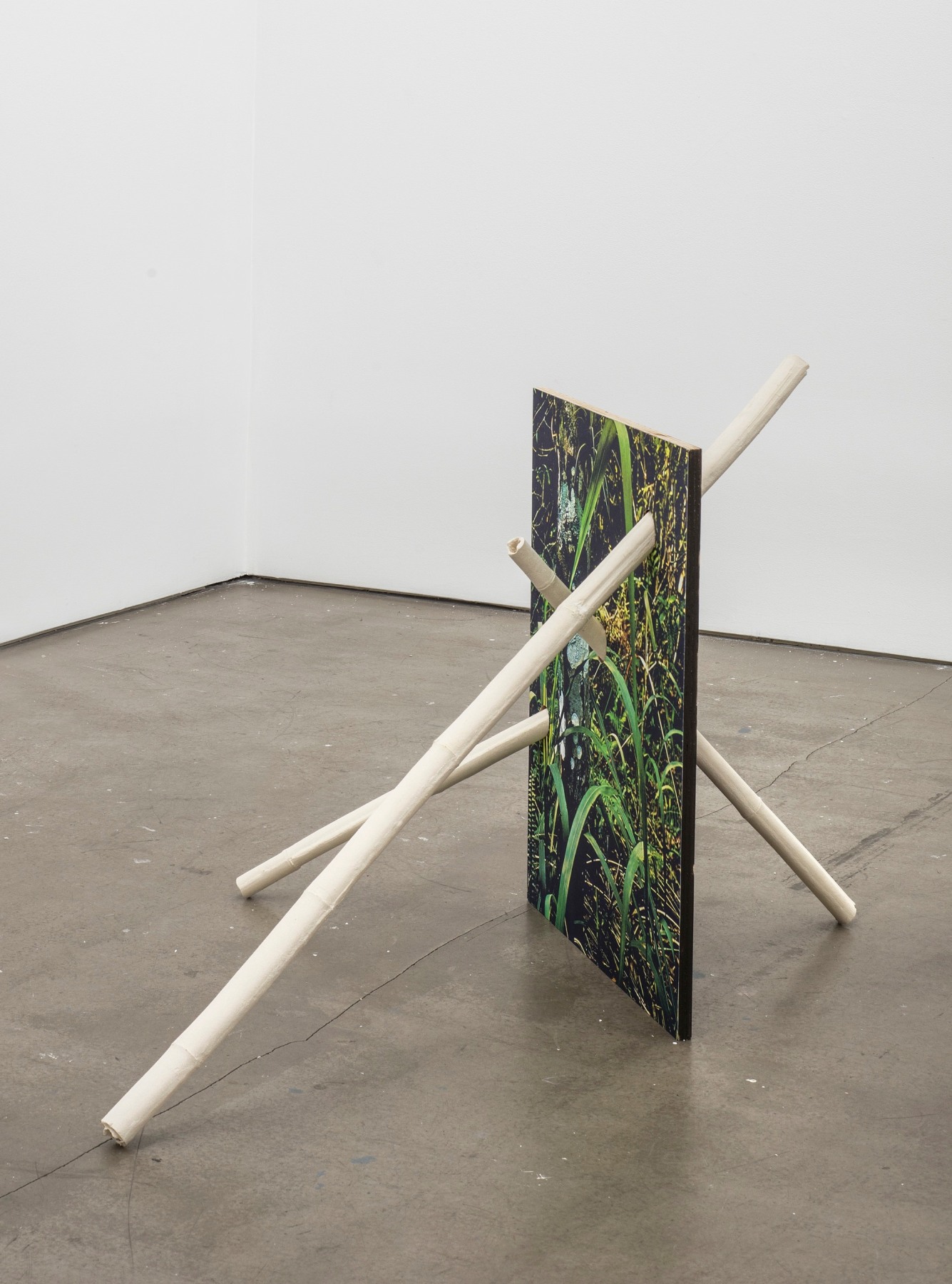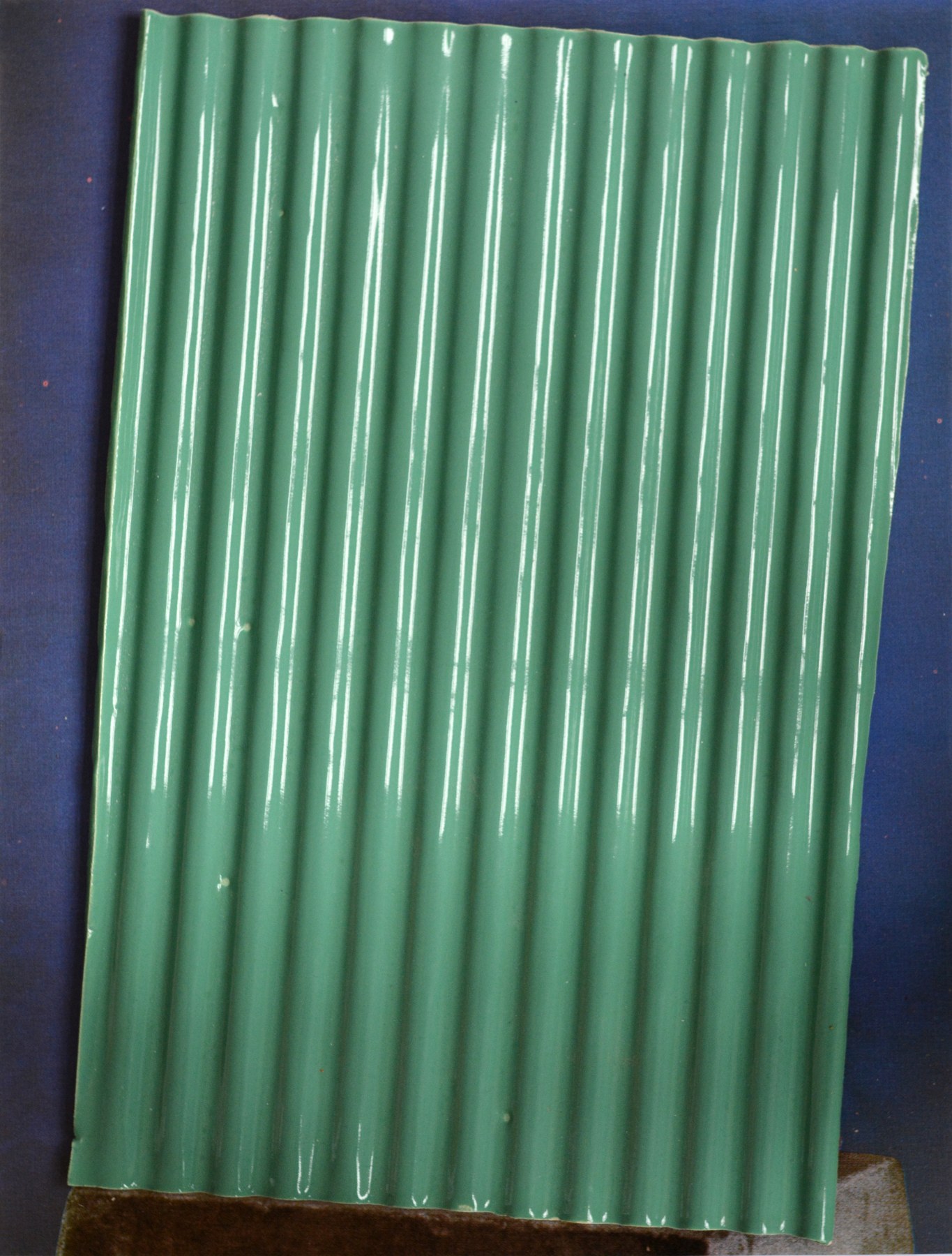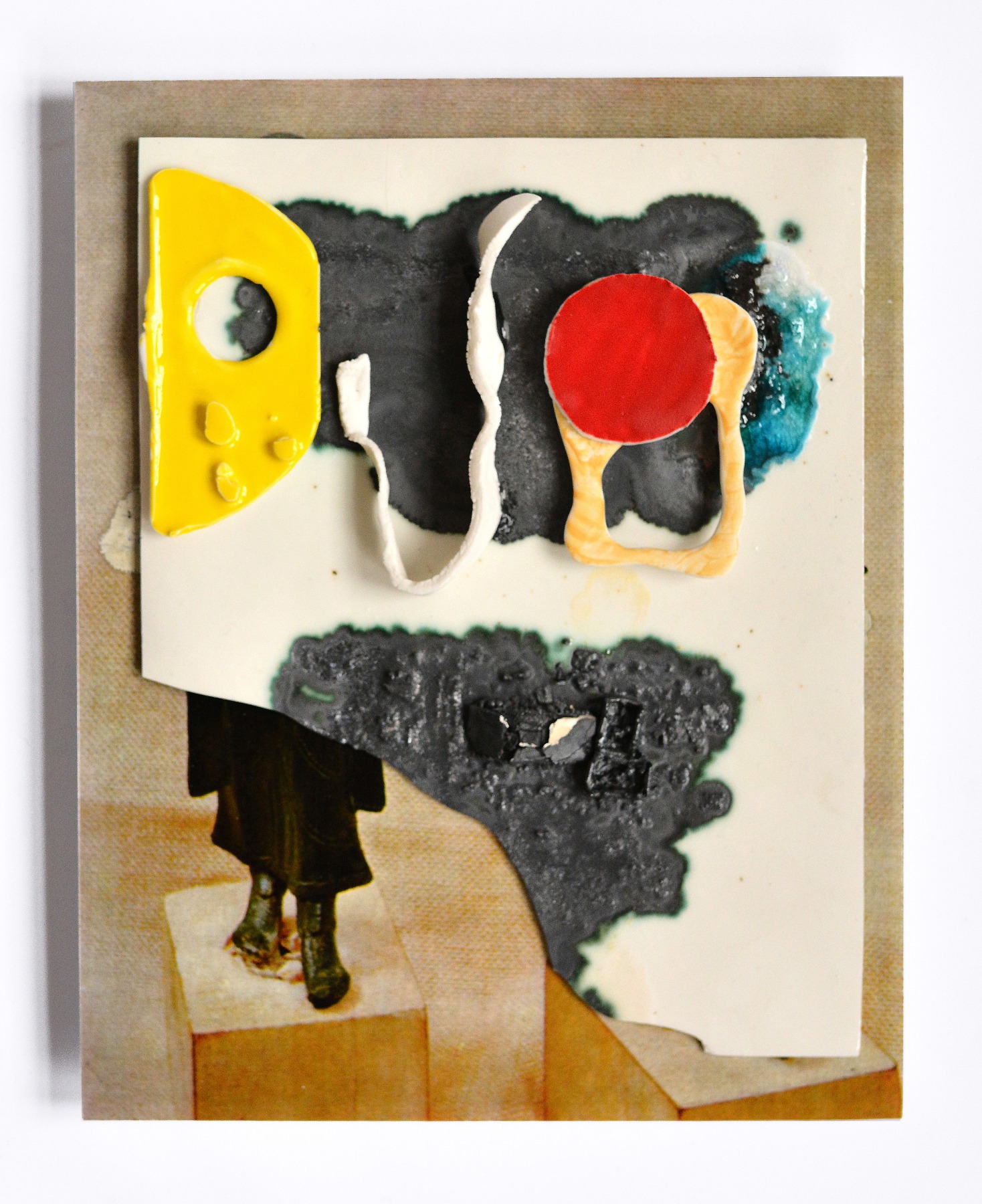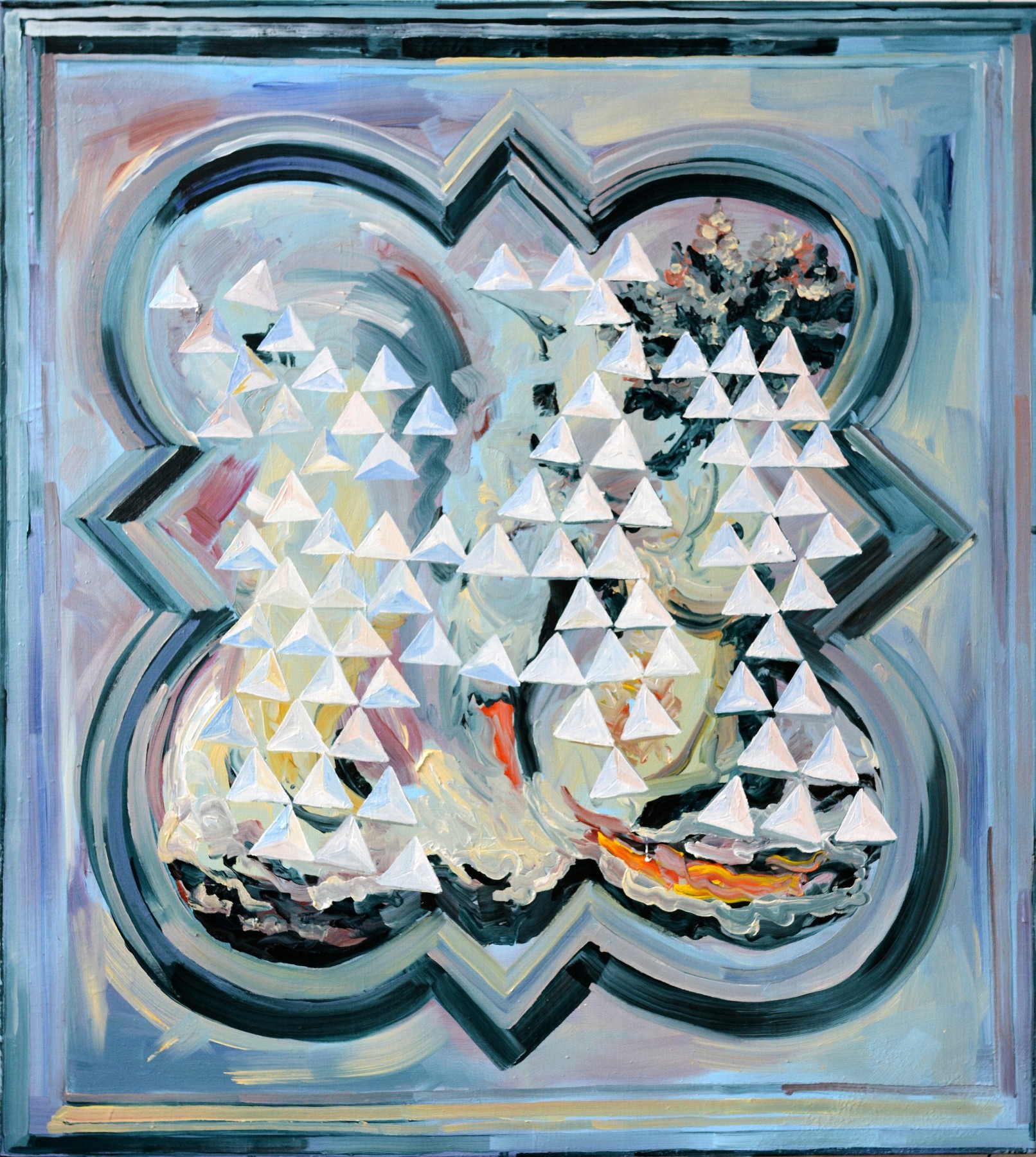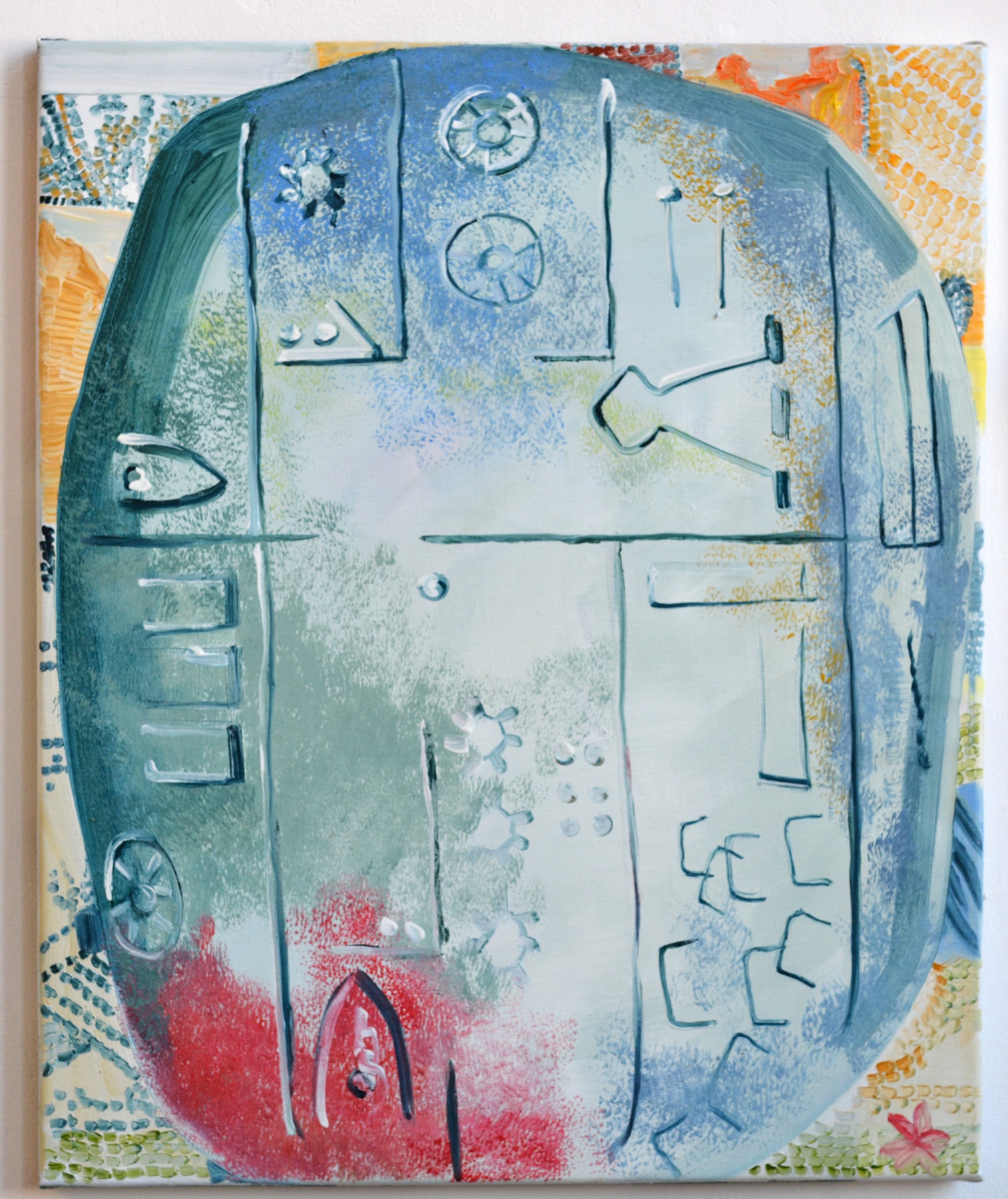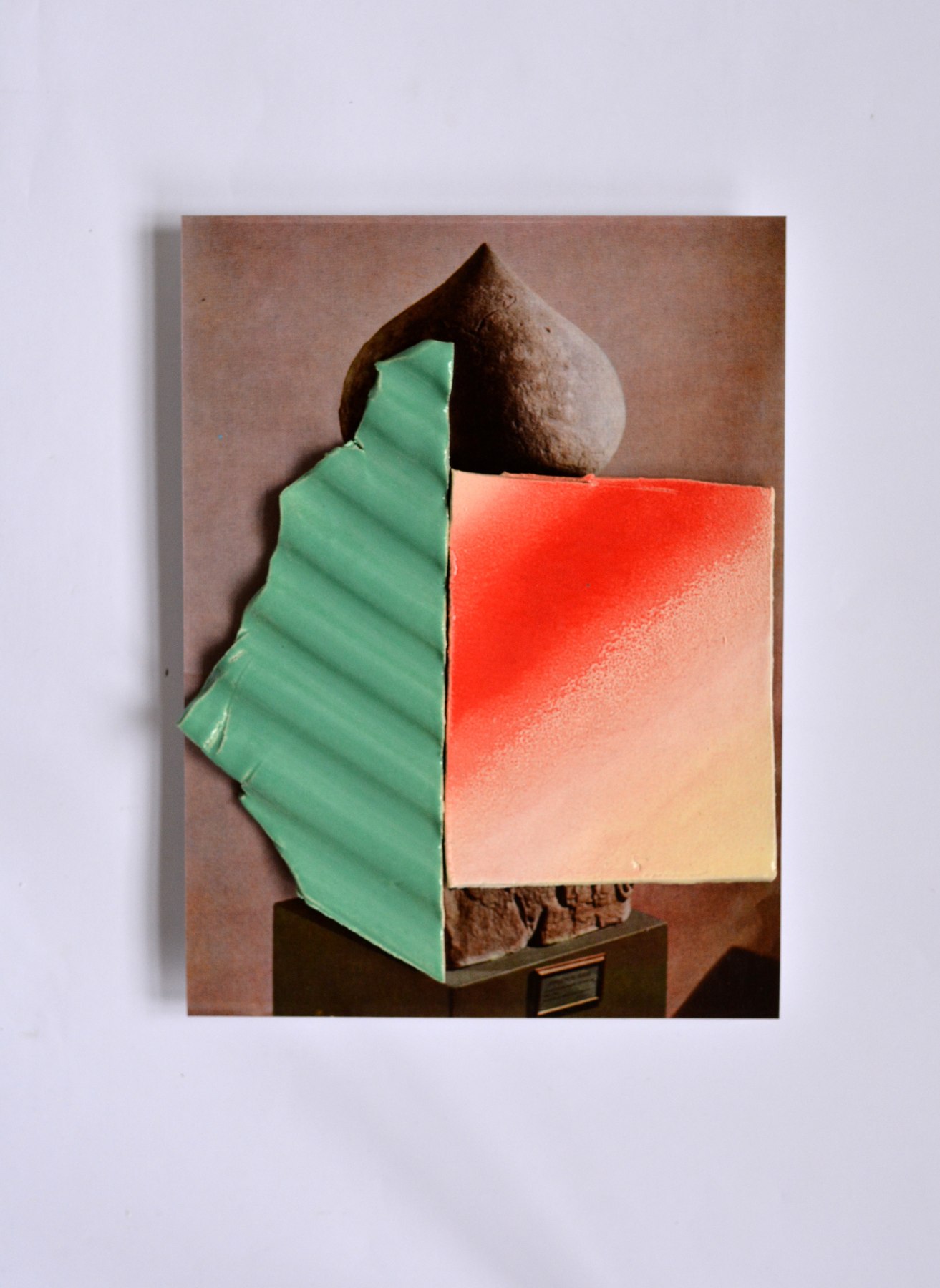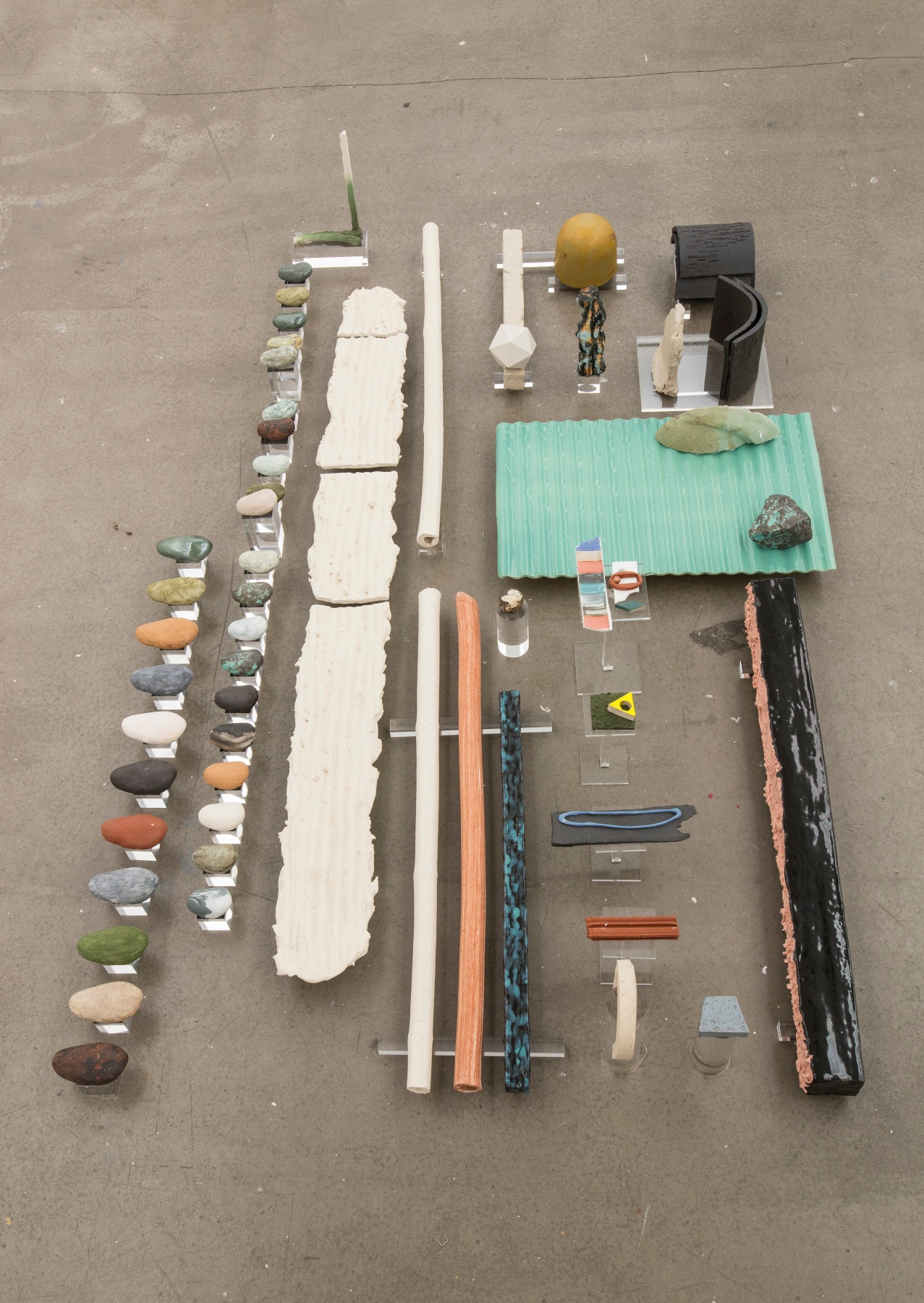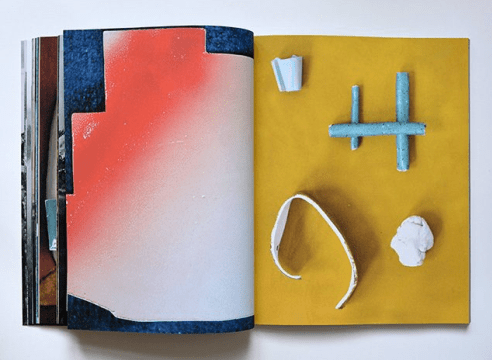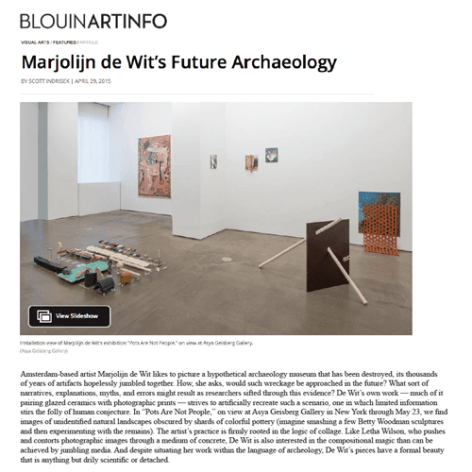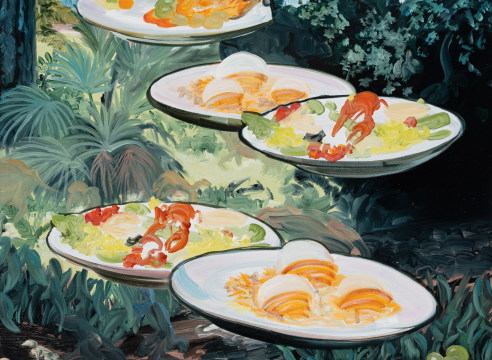
Asya Geisberg Gallery is pleased to present “Pots Are Not People”, an exhibition of ceramic-photographic collage, painting, sculpture, and installation by Amsterdam-based Marjolijn de Wit. This will be the artist’s first solo exhibition in New York. In “Pots Are Not People”, de Wit appropriates photo-based imagery in combination with raw, glazed, or photo-printed ceramic pieces to explore ideas of future archeology, the interpretation of history, and our relationship with nature and the built environment. De Wit’s ceramics evade specific clarification and instead hover between authentic remnants and evocative constructed objects. The artist inserts her counterfeit pieces onto encyclopedic images of vast landscapes, suggesting the subversion of history through archeological analysis.
By integrating scenic vistas with her hand-made ceramic fragments, de Wit suggests how nature has shaped our contemporary municipal environs. Her material juxtapositions manifest the concept of nature as a forged commodity, constructed and romanticized through designed environments such as parks, resorts and gardens. The superficial integration of the natural world into our urban landscape has in turn augmented our experience of nature itself. These fabrications of “nature” become sterile interactions experienced through man-made environments and manufactured locales.
The title of this exhibition refers to Carol Kramer’s 1977 article “Pots and Peoples”. Kramer, a leading figure in ethno-archeology, posits that “ethnicity is a complex social identity that does not generally leave clear markers in the archaeological record”, a statement which acts as a catalyst for de Wit’s oeuvre. The artist’s fabricated remnants play homage to Kramer’s sentiment that archeological discoveries signify diverse and complex notions of economy and locale, as opposed to assuming a more static idea of culture. De Wit’s ceramic components reference contemporary architecture as well as evoking the ancient and historicized. Ultimately, her collaged aesthetic fuses modern and traditional materials to concoct a meta-archeological compendium of our modern world. By providing only pieces of a whole, the artist shifts between historical purveyor and visual trickster, leaving us to imagine not only her conjured histories, but also how others will eventually imagine ours.

